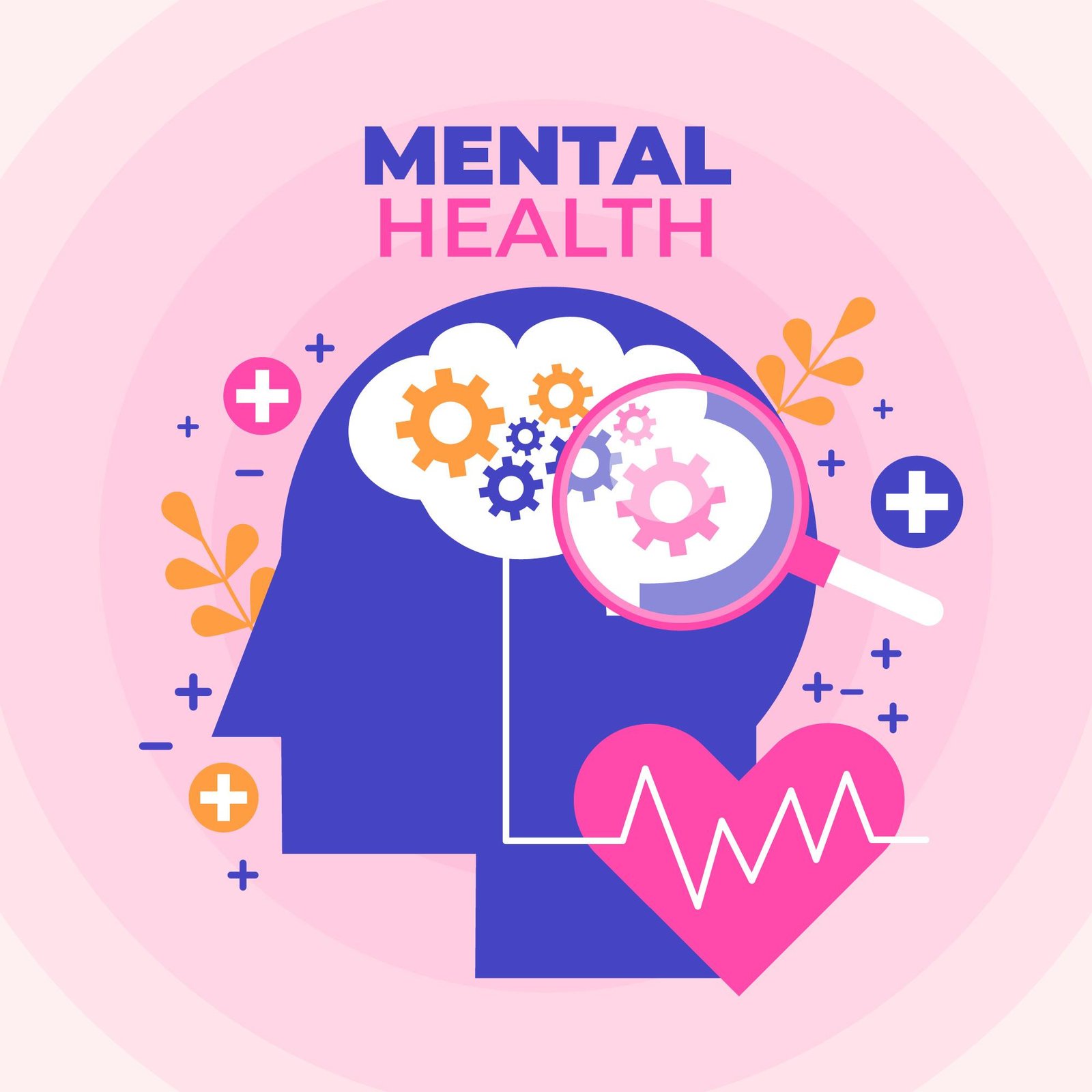- The Relationship Between Physical and Mental Health
Talks about health in our fast-paced society frequently revolve around diet, exercise, and the newest wellness fads. However, mental health is an equally vital issue that demands equal attention. I have years of experience as a mental health worker and have seen firsthand the connection between mental and physical health. Realizing this link can result in a more comprehensive strategy for wellbeing that is advantageous to both people and communities.

The Basics of Mental and Physical Health
It’s critical to identify each element in order to understand how mental and physical health are interconnected. The body’s capacity to operate at its best is referred to as physical health, and it includes everything from immune system function to cardiovascular fitness. Conversely, mental health involves our emotional, psychological, and social well-being, affecting how we think, feel, and act. It also affects our decision-making, interpersonal relationships, and stress management.
The Relationship Between the Body and Mind
There is growing evidence in research indicating there is a direct correlation between physical and mental health. Long-term stress or anxiety, for instance, might manifest physically as headaches, exhaustion, and digestive problems. On the other hand, leading an active lifestyle can improve mood and lessen depressive and anxious symptoms.
Hormones and the neurological system are two of the many channels via which the mind and body can communicate. Our bodies release the hormone cortisol in response to stress, which has an impact on a number of body processes. High cortisol levels have been linked over time to a number of health problems, including elevated risk of chronic diseases, reduced immunological function, and hypertension.
The Role of Lifestyle Choices
Our lifestyle decisions play a crucial role in preserving our emotional and physical well-being. Engaging in regular physical activity is one of the best methods to improve mental health. Endorphins, sometimes known as “feel-good” hormones, are released when you exercise and have the power to elevate mood and lessen the signs of anxiety and melancholy.
A dynamic function is also played by nutrition. Both physical and mental health can be supported by a well-balanced diet full of fruits, vegetables, whole grains, and lean meats and proteins. Improved brain function and mood control have been associated with specific foods, including antioxidants and omega-3 fatty acids.
Moreover, getting enough sleep is crucial. Lack of sleep can exacerbate stress, irritation, and worry, starting a vicious cycle that is harmful to one’s physical and emotional well-being. Making sleep hygiene a priority, which includes keeping a regular sleep schedule and setting up a peaceful environment, can have a big positive impact on general wellbeing.
The Effects of Social Networks
Social interaction is innate in human nature. Our relationships and social networks have a big influence on our physical and mental well-being. While isolation might raise the risk of mental health problems, positive social relationships can lead to better mental health outcomes.
Strong social support networks are associated with decreased rates of anxiety and depression, according to studies. Social interaction can also stimulate physical exercise, which improves health even more. Developing these relationships is crucial, whether it be by playing sports locally, volunteering at events, or just hanging out with pals.
Physical sickness and mental health issues
Physical health problems can be caused by or made worse by mental health illnesses like anxiety and depression. For example, there is a significant risk of heart disease development in those who suffer from depression. Furthermore, chronic illnesses like respiratory or gastrointestinal disorders might be brought on by anxiety.
On the other hand, taking care of physical health problems can greatly enhance mental wellness. For instance, people who receive physical treatment for chronic pain report feeling less distressed and having more mobility, which can positively impact their mental health.
Getting Expert Assistance

Understanding the warning signals of mental health problems is essential to general wellbeing. There are several ways that symptoms might appear, such as behavioral, emotional, or physical changes. Getting assistance from a mental health expert can change the life of you or someone you love who is experiencing difficulties. Effective treatments for a variety of mental health issues include mindfulness practices and cognitive-behavioral therapy (CBT).
A comprehensive strategy must include the integration of mental health services into primary health care settings. Patients receive more thorough care when medical professionals address both physical and emotional health, which enhances overall outcomes.
Stress Reduction with Mindfulness
Practicing mindfulness on a regular basis can improve one’s physical and mental well-being. By encouraging people to live in the present, mindfulness lowers stress and fosters emotional control. Techniques like yoga, deep breathing, and meditation can help with both physical and mental calm.

Furthermore, creating efficient stress-reduction plans is essential. Prolonged stress can cause burnout, anxiety, and depression, all of which have a negative impact on one’s physical well-being. Stress can be less harmful if stressors are recognized and coping strategies, such as time management, exercise, and relaxation techniques, are learned.
The Health Sector’s Future
Integrated health care, which treats both physical and emotional well-being, is becoming more popular as society realizes the importance of mental health. Communities, schools, and employers are starting to understand how important mental health resources and support networks are.
The increasing prevalence of programs like mental health days and corporate wellness initiatives reflects a change in the way we think about health. We can build a stronger, more resilient society by promoting conditions that give equal weight to mental and physical health.
In summary
In summary, there is an unbreakable bond between mental and physical health, and these two domains greatly impact one another. We may increase our resilience and quality of life by placing a high priority on a well-rounded approach to wellbeing. Vibrant steps toward attaining holistic health include embracing lifestyle choices that support both parts, fostering social connections, and supporting integrated health treatment.
As we go, let’s keep cultivating a culture that values and acknowledges the significance of both physical and mental health, making sure that everyone has access to the tools and assistance they require to flourish. In the end, health is a dynamic condition of well-being that includes the mind, body, and spirit rather than just the absence of disease.


